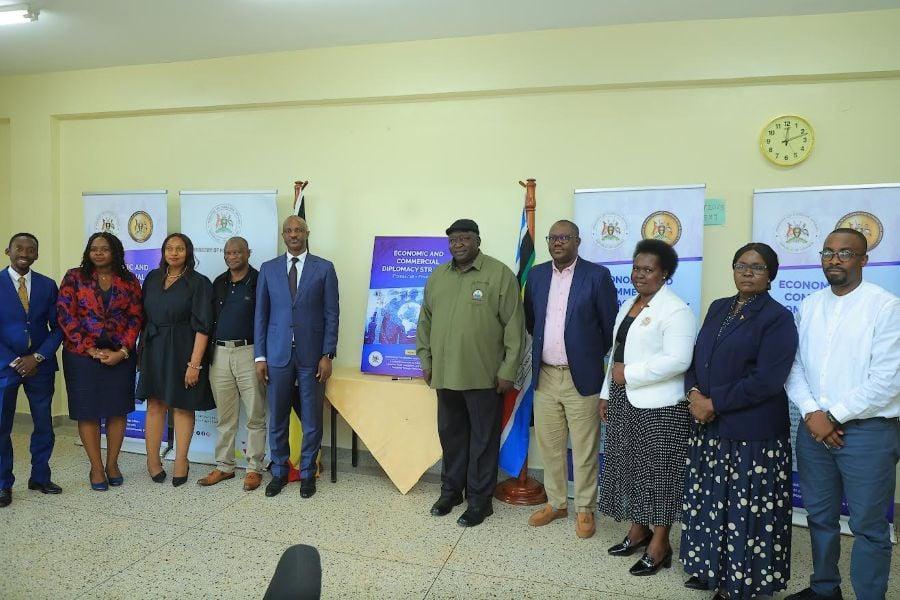Africa-Press – Uganda. The Ministries of Foreign Affairs and Finance have unveiled Uganda’s first Economic and Commercial Diplomacy (ECD) Strategy Handbook, a blueprint to strengthen the country’s global trade, investment, and development agenda.
The handbook was launched during the Annual Ambassadors’ Conference in Gulu by Permanent Secretary and Secretary to the Treasury (PSST) Ramathan Ggoobi, alongside Minister of State for Foreign Affairs in charge of International Cooperation, Henry Okello Oryem.
Hon. Oryem said the ECD handbook will serve as a guiding framework for Uganda’s missions abroad, stressing that all Heads of Mission and Foreign Service Officers must read, understand, and apply it to attract investment, promote tourism, and expand Uganda’s economic footprint.
“The ECD strategy is now a handbook for economic and commercial diplomacy. Every Head of Mission and Foreign Service Officer should read, understand, and apply it to ensure coordinated action that attracts investment, tourism, and development for Uganda,” Oryem said.
Foreign Affairs Permanent Secretary Vincent Waiswa Bagiire urged Heads of Mission to remain aligned to Uganda’s national development agenda, minimize distractions, and actively engage in advancing the country’s global positioning.
He praised Ggoobi’s leadership in energizing missions to align with Uganda’s Tenfold Growth Strategy, citing positive transformations in missions such as Tokyo and New Delhi.
In his keynote, Ggoobi highlighted Uganda’s growing economic resilience, pointing to stable currency performance, foreign direct investment (FDI) inflows of $3.7 billion, record coffee exports of $2.2 billion, a $1.5 billion tourism recovery, and significant diaspora remittances.
He anchored these achievements within Uganda’s focus areas of agro-industrialization, trade, tourism, and manufacturing, calling for sustained policy consensus, skills development, environmental sustainability, and market integration.
Ggoobi also reaffirmed his commitment to personally visit all Uganda missions abroad to strengthen oversight and coordination.
Bagiire provided further insight into the ECD strategy, outlining its key objectives: enhancing institutional coordination, strengthening export-import think tanks, building technical capacity, boosting tourism promotion, advancing knowledge and technology transfer, and deepening private sector engagement.
Day Two of the Ambassadors’ Conference featured in-depth deliberations on aligning mission activities with Uganda’s development priorities, ensuring stronger institutional collaboration, and measuring the impact of economic diplomacy on national growth.
For More News And Analysis About Uganda Follow Africa-Press






